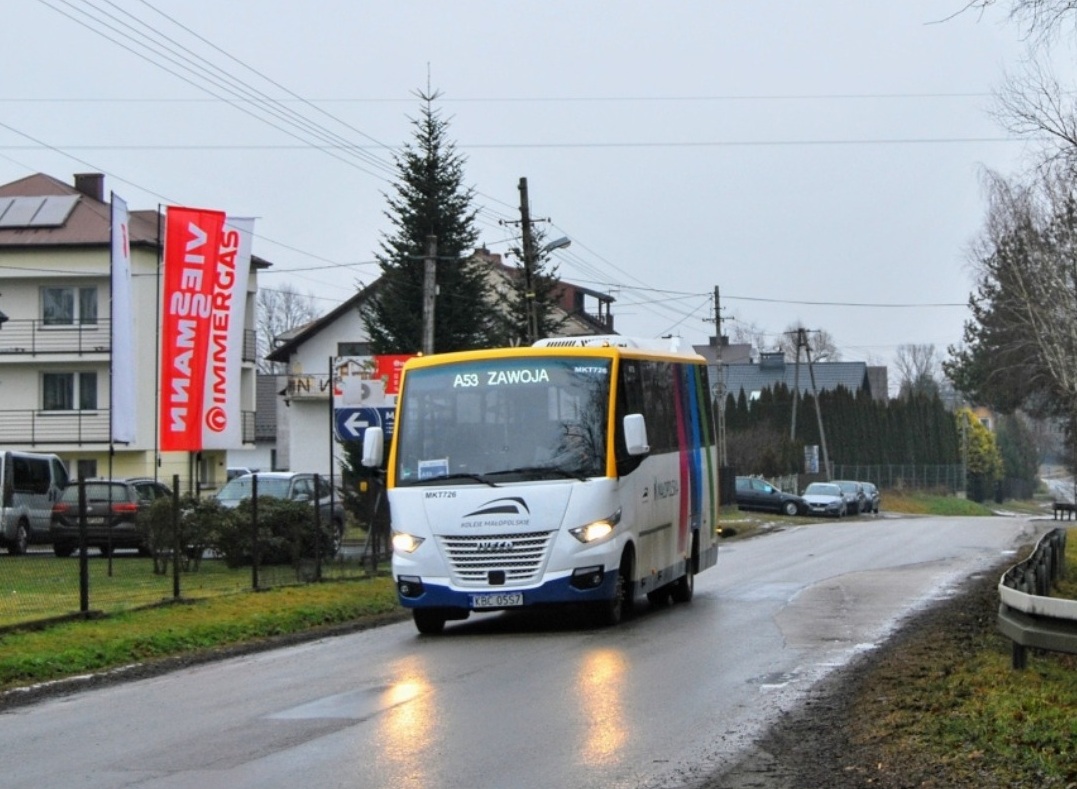A lot will change in the bus fund. Amendment to the act finally prepared

- - The government's work programming team will take care of this project and I think that in this way the entire procedure will be carried out efficiently and quickly so that this project can be adopted as soon as possible - said Deputy Minister Bukowiec during the 17th European Economic Congress.
- He noted that many of the conclusions analysed and consulted at the meetings of the expert team appointed by the Minister of Infrastructure were reflected in the provisions of new projects.
- One of the most important novelties is, among others, the introduction of the so-called railway component, i.e. support for rail carriers for the organization of bus feeder lines. - But it is also about proposing to the marshals and other local governments to launch currently unprofitable lines and courses with a surcharge.
Already in January this year, Stanisław Bukowiec, Deputy Minister of Infrastructure and Government Plenipotentiary for Combating Transport Exclusion, presented details of changes in the Bus Transport Development Fund (FRPA).
As for the most important, he announced, among other things, the possibility of obtaining subsidies by public transport organizers for servicing suburban sections outside the borders of municipalities with the status of cities and increasing the role of voivodeship marshals in the fight against transport exclusion. The marshals' duty is to organize public transport in their regions and assess applications for subsidies submitted by other local governments.
The order of granting subsidies is to be reversed. Currently, municipalities have priority, before inter-municipal, district-municipal associations, districts, and only at the end are provincial governments. Another issue is the introduction of a requirement to equip buses serving lines co-financed from the FRPA with special GPS devices - subsidies would be paid based on readings from these devices. Another novelty would be the obligation of organizers and operators to publish timetables in a unified format on the Internet. In addition, organizers whose lines are served by rolling stock that meets minimum standards regarding, for example, exhaust gas purity standards and a specified age, as well as rail carriers , could count on subsidies.
Stanisław Bukowiec: the project will be handled by the government work programming teamDuring the 17th European Economic Congress , which took place on 23-25 April 2025 , we asked the deputy minister when we can expect specific draft laws.
- At the beginning of the year, I did indeed announce new regulations - a thorough reform of the act on the Bus Transport Development Fund. A draft act has already been prepared, which we will submit to the Chancellery of the Prime Minister next Monday (i.e. April 28, 2025 - editor's note) - announced Stanisław Bukowiec , with whom we spoke on April 25. - The government's work programming team will deal with this project and I think that in this way the entire procedure will be carried out efficiently and quickly so that this project can be adopted as soon as possible.
They took into account the comments of experts, local government officials and the industry. The important role of the voivodeship marshalsHe added that in recent months the ministry had been carrying out a kind of pre-consultation.
- Until the end of March, an expert team appointed by the Minister of Infrastructure was in operation, to which we invited representatives of both the industry and local government officials, as well as groups that deal with issues of communication exclusion. Many of the conclusions that were analyzed and consulted by this team were reflected in the provisions of new projects - emphasized the government's plenipotentiary for combating communication exclusion .
He recalled that he discussed these matters in great detail at the last Convention of Voivodeship Marshals, which took place in Kraków .
- Since in the main outline we want to decentralize the entire procedure of exclusionary action , in terms of communication, we want to transfer these tasks and coordination of these tasks to the marshals of the provinces , also with appropriate funds - he indicated. - We believe that at the regional level, at the level of provinces, it is easier to identify these needs based on provincial transport plans. Thanks to this, it will be easier to locate these blank spots and fill them with communication lines.
Rail Component in FRPA. What exactly is the money for for rail companies and local governments?One of the biggest changes is to be the so-called railway component , which the name itself suggests - supposedly a bus fund, but here we are talking about the railway. According to the minister, this is intended to integrate various transport connections even better.
- This is already happening in many provinces and regions. An example is the province of Małopolska, which, having its own railway company, has expanded it to include a bus segment and, within the framework of the so-called feeder lines, efficiently provides connections even from distant places, communes. They enable passengers to reach the nearest train stop and change to a train - on one, colloquially speaking, ticket you can use two means of transport - noted Stanisław Bukowiec.
Activate unprofitable lines. Changes only from the 2027 recruitment.He noted that the idea is also to, with the parallel modernisation of railway lines and investments in rolling stock at the national level, propose to the marshals and other local governments to launch currently unprofitable lines and routes with a subsidy under the FRPA.

- We want these lines, which may not be so crowded at the moment and which reach residents of areas located far from city centres, to be activated and to enable passengers to use them through travel subsidies - said Stanisław Bukowiec .
He had previously announced that the ministry intended to complete the entire legislative process in 2025 , but the changes would only come into force from the 2027 recruitment.





